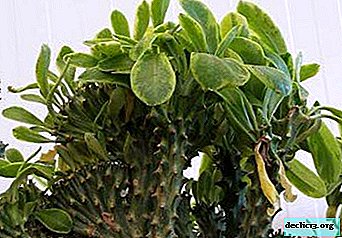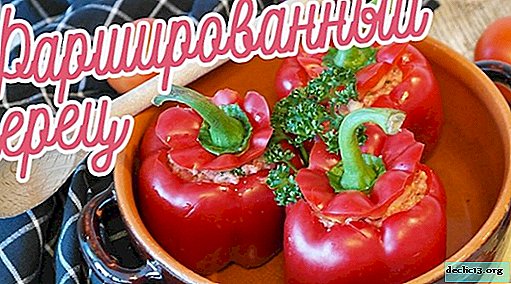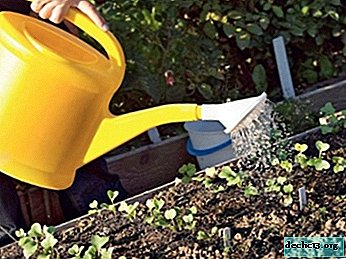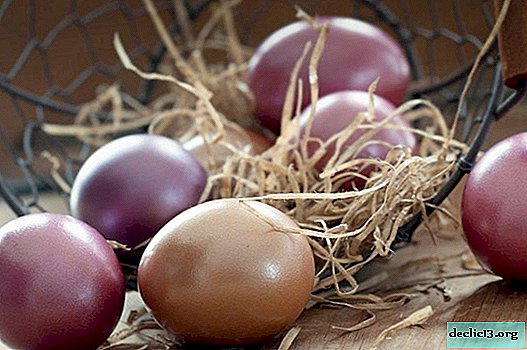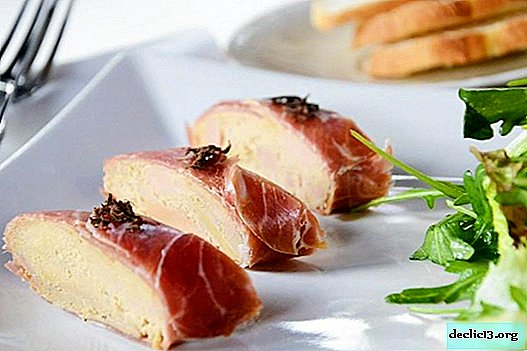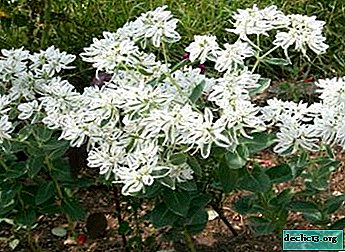How to salt watermelons for the winter

The season of the striped berry is slowly drawing to a close and over time the last fruits will disappear from the beds and store shelves. And many sweet tooth want to keep a piece of summer and enjoy its taste as far as possible. The only way out is to salt watermelons for the winter at home.
Preserving fresh watermelons is problematic. But there are other methods of harvesting berries, including salting. Let's take a closer look at the technology of pickling striped treats and pay attention to important points. Thanks to the information received, you can easily make excellent preparations for the winter.
The classic recipe for salting watermelons in jars

If you decide to pickle watermelons for the winter and have not done this before, I advise you to start with the classic recipe. It is as simple as possible and strongly resembles the technology by which pickles, tomatoes, peppers and other vegetables and fruits are salted.
Ingredients:- Watermelon - 2 kg.
- Water - 1 liter.
- Vinegar - 50 ml.
- Sugar - 3 tablespoons.
- Salt - 1.5 tablespoons.
How to cook:
- For salting, use whole watermelons without damage. Rinse each berry with water, dry and cut into small pieces. Fill the prepared jars with slices.
- Make a pickle. To do this, add salt, sugar and vinegar to boiling water, boil for literally 30 seconds. Pour jars with hot brine.
- Put the filled containers in a large pot, pour water over the shoulders and sterilize for 20 minutes. Then roll up the covers and leave them upside down under the covers until they cool.
Some culinary specialists remove the crust from watermelons during salting. This procedure is optional, most importantly, do not use watermelons bought at the store for winter preparations, especially if the season has just begun. Otherwise, nitrates, which are saturated with early berries, will fall into the jar with the delicacy.
How to salt watermelons in a barrel

Now watermelons are salted in jars and other small containers, but before, wooden barrels were used for this purpose. It is not difficult to salt the striped fruits in such a dish, as well as get an excellent result. It all comes down to the right choice and preparation of the product, preparing a good brine and providing optimal storage conditions.
Ingredients:- Watermelons - the amount depends on the capacity of the barrel.
- Water - the volume depends on the capacity of the barrel.
- Salt - based on 700 g per 10 l of liquid.
- Rinse the watermelons with water and dry with a towel. In each berry, use a toothpick to make a dozen symmetrical punctures, then fold them into a clean barrel, fill with brine so that it completely covers the fruits.
- Cover the container with a piece of clean cloth, put a wooden circle scalded with boiling water on top and place a heavy object. The main thing is that the circle does not float, otherwise air will enter the container and the workpiece will deteriorate.
- Leave the covered barrel for a day at room temperature, then put it in a cool place. In three weeks, watermelons will be well salted and will be suitable for eating.
There are many ways to pickle in a barrel. Some include the use of sugar, others spices. In this recipe, these ingredients are absent, which helps to preserve the natural taste of watermelons.
What is better to ferment or salt watermelons?

Watermelons are harvested for the winter in various ways, including pickling and pickling. The first technology is based on the use of vinegar, and the second is based on the action of lactic acid bacteria contained in berries.
Each method is good, but fans of the delicacy claim that watermelons soaked in barrels are tastier and healthier, because the product does not undergo heat treatment. In fact, only by experience can you determine the best way, because everyone has their own tastes.
The benefits and harms of pickled watermelons
Salting is a popular method of harvesting watermelons. At the same time, the calorie content of the product is only slightly higher than the nutritional value of fresh berries and is 40 kcal per 100 grams. Therefore, the workpiece is appropriate for diet food.
Salt watermelon is saturated with hydrochloric acids and a large amount of dietary fiber. It has a lot of copper, cobalt, chlorine, zinc and sulfur. These minerals are necessary for the normal functioning of the body.
Like any other product, in some cases, salted watermelons do harm to the body. Procurement is not recommended for people who:
- Disturbed outflow of urine.
- Stomach upset.
- Stones in the body.
- Diabetes.
Watermelon provides a strong diuretic effect. As a result, the stones move from place, which causes severe pain. Even healthy people are not recommended to use salted watermelons after a salty meal, since salt slows the outflow of fluid from the body and causes swelling.
It is strictly forbidden to eat watermelons, the nitrate content of which exceeds the norm. If you bought watermelons before pickling, and their purity is in doubt, eat only the core. It contains less harmful substances.
Useful Tips
Watermelons are salted in many ways. Some recipes include salting in their own juice, while others are based on the use of spices. There are also combined options.
- If you like spicy pickles, it is recommended to add a little ginger, coriander, allspice, garlic, currant or cherry leaves to the bowl with watermelons.
- Watermelons combine well with other ingredients. We are talking about apples, cabbage and green tomatoes, which best complement their taste.
- Such preservation is stored for a long time if it is provided with optimal storage conditions. The mold that has appeared is carefully removed and a little brine is added to the container. Oppression is also poured over with boiling water.
If you want a tasty treat, keep the pickles in a cool place and control the salting process. In response, the homemade blank will thank you for its unsurpassed taste and mass of culinary impressions.
Is a watermelon a berry or a fruit?

Interesting question, right? In the olden days, gardeners from around the world had an extensive discussion about this. No wonder, because watermelon tastes very much like fruit. But there is a discrepancy, because most fruits grow on trees. Watermelon has similarities with vegetables. It's about the nature of growth.
It took many years to solve this breeding problem. In the last century, the classification procedure for all garden crops was completed.
As a result, watermelon was attributed to the berries. So, according to generally accepted terminology, watermelon is a berry, not a fruit or vegetable.

